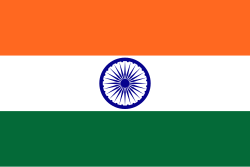
The strikes, carried out on 7 May, were described by Indian officials as "focused, measured, and non-escalatory," with an emphasis on avoiding civilian infrastructure. However, Pakistani authorities reported that the attacks resulted in 31 civilian deaths, including women and children, and injured 46 others. Among the casualties were ten relatives of Jaish-e-Mohammed leader Masood Azhar. Pakistan condemned the strikes as an "act of war" and claimed to have downed five Indian jets and a drone in retaliation. India has not confirmed these losses.
The Pahalgam attack on 22 April, in which militants targeted Hindu tourists, has been attributed by India to Pakistan-based groups. The Resistance Front initially claimed responsibility but later retracted its statement. India responded by suspending the Indus Waters Treaty, expelling Pakistani diplomats, and closing border crossings. Pakistan countered by suspending the Simla Agreement, expelling Indian diplomats, and closing its airspace to Indian flights.
The international community has expressed concern over the escalating conflict. The United Nations, United States, United Kingdom, China, and other nations have urged both sides to exercise restraint and engage in diplomatic dialogue. U.S. President Donald Trump described the situation as "a shame" and expressed hope for a swift resolution. The European Union and other global entities have offered to mediate to prevent further escalation.
The conflict has also disrupted civilian life and air travel in the region. Airlines such as Air India, IndiGo, and SpiceJet have been barred from Pakistani airspace, and international carriers have rerouted or suspended flights over the conflict zone. Flight tracking data indicates a near-complete shutdown of flights over Pakistan.
In India, the government initiated Operation Abhyaas, a nationwide emergency preparedness drill, to strengthen readiness in the face of potential escalation. The drill included testing air raid sirens, readying bomb shelters, simulating blackouts, and training civilians in emergency response procedures across 244 districts.
